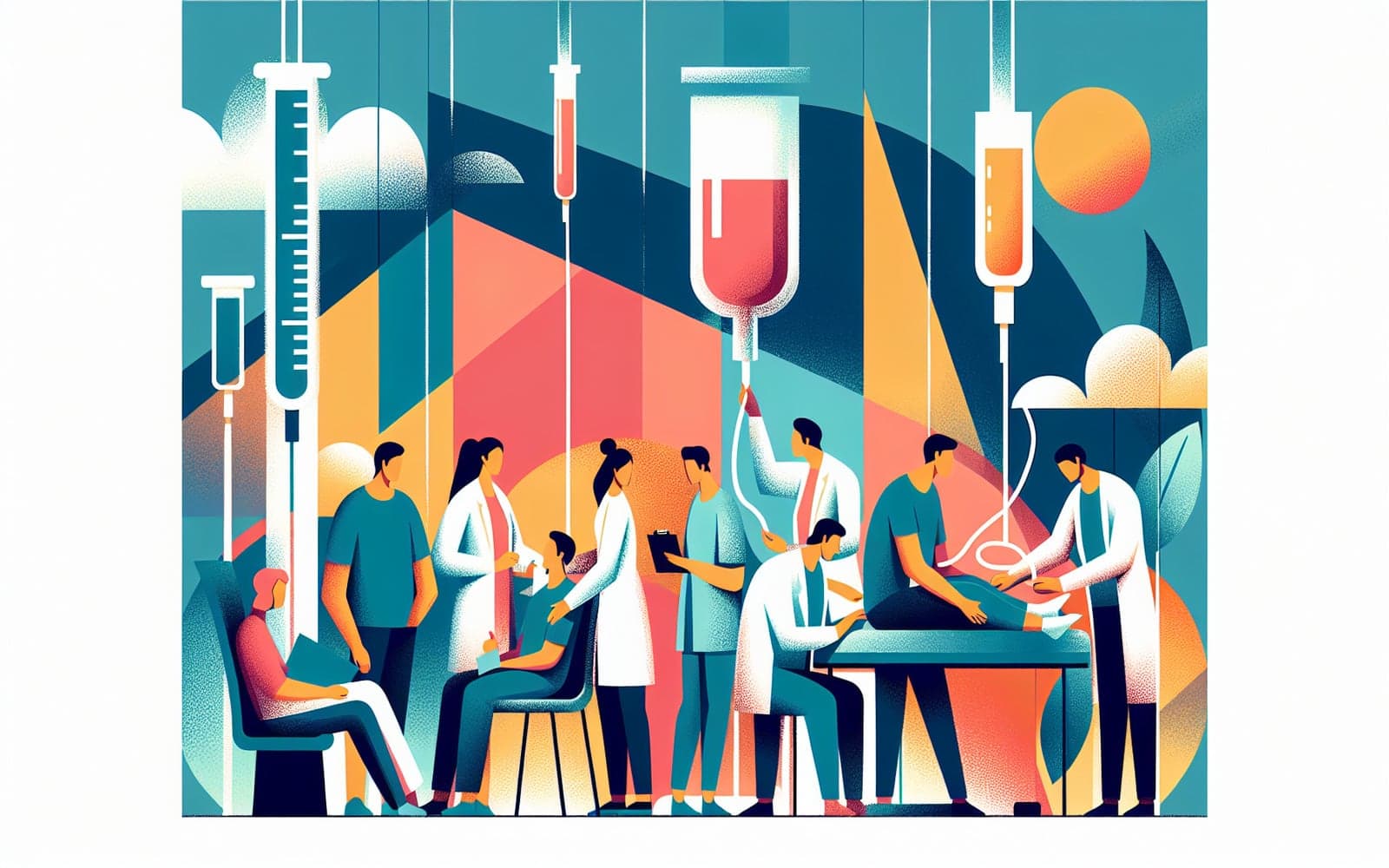Fighting Back: Treatments That Help Defeat Guillain-Barré Syndrome
Published: May 17, 2024

Medically reviewed by Benjamin Seth Martinez | MD, Statpearls - Director of Clinical Content on May 17th, 2024.
When Guillain-Barré syndrome (GBS) strikes, quick and effective treatment is crucial. While there's no cure, several therapies can help manage symptoms and speed recovery. Let's explore the weapons in our arsenal against GBS.
Contents
Plasma Exchange: Filtering Out the Bad Guys
One of the main treatments for GBS is plasma exchange, also called plasmapheresis. This process is like an oil change for your blood. It removes the plasma (the liquid part of your blood) and replaces it with a plasma substitute. This helps remove harmful antibodies that are attacking your nerves. Plasma exchange is typically done several times over a few weeks.
Immunoglobulin Therapy: Calling in the Reinforcements
Another key treatment is intravenous immunoglobulin (IVIG) therapy. This involves giving you a high dose of healthy antibodies from blood donors. These good antibodies help block the harmful ones causing GBS. IVIG is usually given daily for five days. It's about as effective as plasma exchange, and the choice often depends on availability and individual factors.

Supportive Care: Managing the Symptoms
While plasma exchange and IVIG fight the underlying cause of GBS, supportive care is crucial for managing symptoms. This might include mechanical ventilation if breathing muscles are affected, medications for pain relief, and treatments to prevent blood clots. Close monitoring in an intensive care unit is often necessary, especially in the early stages of GBS.
Frequently Asked Questions
Acute treatment typically lasts a few weeks, but recovery can take months.
Most people respond well, but effectiveness can vary.
Initial treatment usually requires hospitalization.
Yes, but they're usually manageable and outweighed by benefits.
Key Takeaways
While GBS treatment can be intense, these therapies offer hope for recovery and return to normal life for many patients.
Wondering which GBS treatments might be right for you or a loved one? Consult with Doctronic for personalized treatment insights.Related Articles
References
Hughes RA, Swan AV, van Doorn PA. Intravenous immunoglobulin for Guillain-Barré syndrome. Cochrane Database Syst Rev 2014; 2014:CD002063.
Raphaël JC, Chevret S, Hughes RA, Annane D. Plasma exchange for Guillain-Barré syndrome. Cochrane Database Syst Rev 2012; 2012:CD001798.
This article has been reviewed for accuracy by one of the licensed medical doctors working for Doctronic. Always discuss health information with your healthcare provider.

